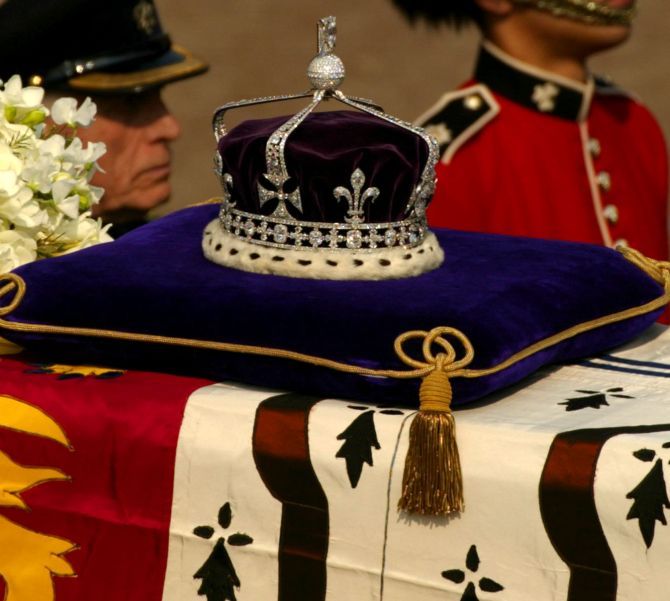
The 108-carat Kohinoor diamond was “surrendered” by the Maharaja of Lahore to the Queen of England and “not handed over” to the British nearly 170 years ago, according to an Right to Information Act reply.
The information was given by the Archaeological Survey of India in response to a query by a Ludhiana-based activist, as to whether the precious gem was a gift to the British or its possession was transferred for some other reason.
Incidentally, the written response from ASI, dated October 10, is divergent from the Centre’s version in the Supreme Court in April 2016.
The Kohinoor diamond, estimated to cost over $200 million (Rs 1,465 crore), was neither stolen nor “forcibly” taken by British rulers but given to East India Company by erstwhile rulers of Punjab, the government had told the apex court.
Rohit Sabharwal on Tuesday said he had filed an RTI query about a month ago, seeking the answer from the Prime Minister’s Office. “I did not know that the query was forwarded to the ASI, which eventually responded to the query.”
“As per the records kept in the National Archives of India, New Delhi... the Lahore treaty held between Lord Dalhousie and Maharaja Duleep Singh in 1849, Kohinoor diamond was surrendered by the Maharaja of Lahore to the Queen of England,” according to the reply.
Kohinoor, which means ‘Mountain of Light’, is a large, colourless diamond that was found in Southern India in early 14th century. The precious gem, which came into British hands during the colonial era, is the subject of a historic ownership dispute and claimed by at least four countries, including India.
The reply gives an extract of the treaty which reads, “The gem called Kohinoor which was taken from the Shah-Suja-Ul-Mulk by Maharaja Ranjeet Singh shall be surrendered by the Maharaja of Lahore to the Queen of England.”
According to the reply, the content of the treaty indicates that “the Kohinoor was not handed over to the British on the wishes of Duleep Singh. Moreover, Duleep Singh was a minor at the time of the treaty”.
Sabharwal said he had gone to England recently and “there I saw the Kohinoor in a museum, and the information that I was given was that, it was a gift.
“So, after returning to India, I decided to file the query to get the answer,” he said over phone from Ludhiana.
He said the response of the ASI and the Centre in 2016 are “contrary to each other” and therefore the central government must look into it.
Solicitor General Ranjit Kumar in 2016 had told a bench headed by the then Chief Justice T S Thakur, “Kohinoor cannot said to be forcibly taken or stolen as it was given by the successors of Maharaja Ranjit Singh to the East India Company in 1849 as a compensation for helping them in the Sikh wars”.









 © 2025
© 2025